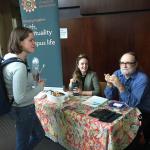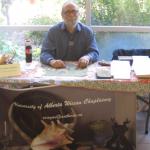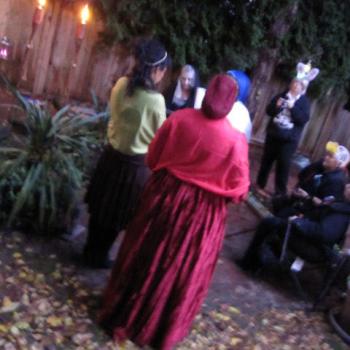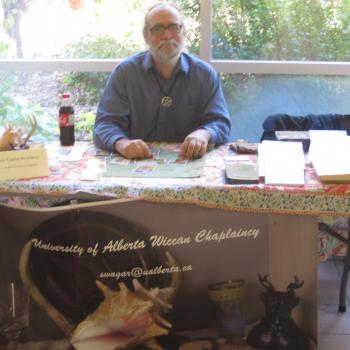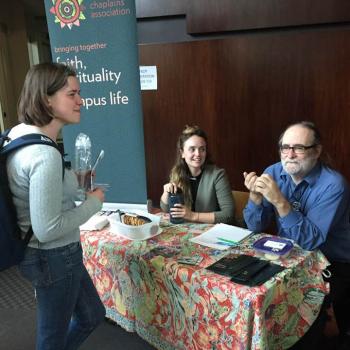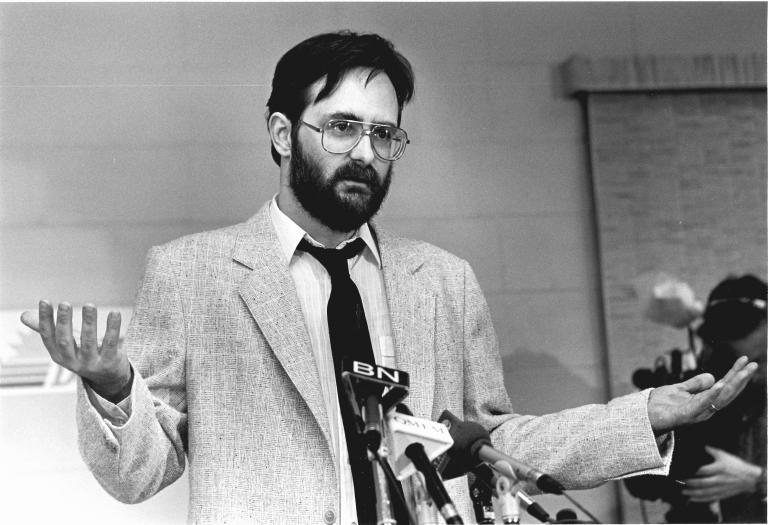
From time to time, every public Priestess will have to talk with the press. Looking to become better known and to contact new people is good for the health of the temples both by bringing in new people and undercutting the haters. We have to be careful to prevent publicity from backfiring – one incoherent flake ‘spokesperson’ can cause lots of damage to our public image. We don’t have money for conventional advertising (not consistent with our goals and community-building approach, anyhow, as we want communities of spiritually aware adults and families not religious consumers). These tips come from my thirty years as a public Witch.
The media always interview a Witch or profile our religion at Hallowe’en, so always have a spokesperson available at that time of year. Press releases are a useful tool at other times. When your groups are doing something worthwhile – ordaining a Priestess, chartering a temple, celebrating a significant event in a public way, contacting the local media will generally produce an article. The larger media – metropolitan newspapers, television – are worth contacting in a targeted way, but the best results will be had by dealing with the local weeklies and smaller city newspapers.
Our temples are public, and our ordained clergy are public figures. Temples must all be above board and sensibly organized, headed by competent people who present themselves well. Spokespeople must be clearly authorized and able to say who has authorized them to speak for them – High Priestess IReadABookRavenFart will not be quoted if there is a sensible person who is qualified and authorized to quote instead when the reporter is dealing with an event. Part of clergy training should include dealing with publicity and with the press.
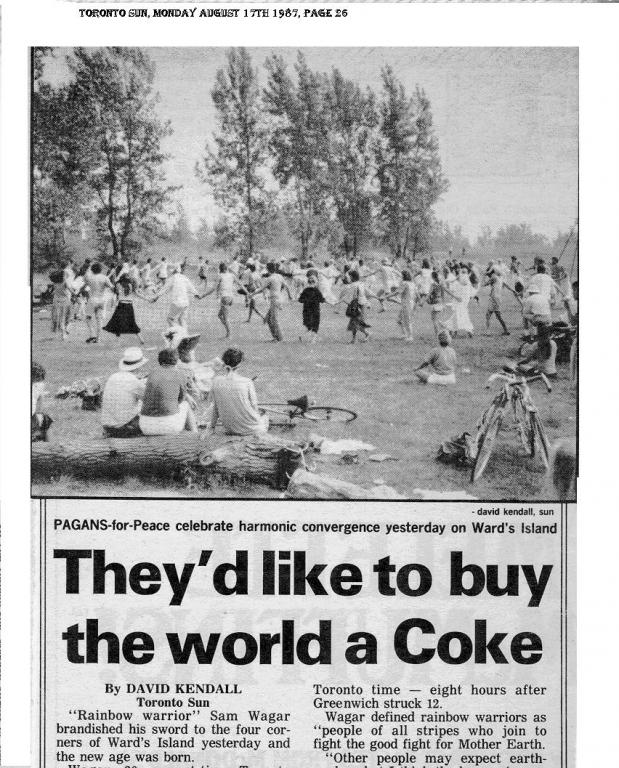
Now, back to talking with the press:
First, attitude adjustment: repeat to yourself a hundred times that “The press are our friends”. They are the greatest means by which we will communicate to the world about who and what we really are, and what activities that we are involved in, and what we think is important. For public organizations and activities it is vitally important to be liked and respected by the press and to have this point be very clear in whatever encounters that we may have with them.
So, if media people are expected at your event (and it is a good idea to invite them to any special events that you are putting on), have a designated spokesperson who is well informed and be sure that the media are directed to her first. They must be free to talk with whomever they wish to but at least the first conversation, which will shape the rest of the story, will be a reasonable one. Make sure that things are comfortable for the media so that they can do their jobs – make provision for lines of sight for cameras, electrical outlets, space for microphones and the like, as necessary. Treat the media as guests but don’t shape your events around them – we are doing these events for ourselves and the general public, not for them. If you call a press conference, this is the one occasion on which the media are central and only authorized spokespeople should speak with them.
Second, give the press what they can use but not necessarily on their terms. There are different types of information and presentation that different types of media need – print needs facts, radio needs wit and humour, television news needs short and effective statements and visual interest. They have different story needs; magazines are more interested in the development of a situation and background, religion reporters and feature reporters are interested in what you believe and why, regular news reporters are interested in what you are doing and planning to do, particularly at the event they will be covering.
Have an idea in your head of what the particular media person you are talking with might need and tailor your presentation to their needs. Otherwise they will extract from the situation what they need, which might not be what you thought that you were talking about. Staging public rituals, for example, is acceptable but chancy, and you need to keep the audience effect in mind as well as the issues of confidentiality, privacy and Oath-bound material. Every person in your community who will encounter press must be informed that they might and a ‘press-free’ area should be established at a completely public event.
Third, you should approach media people as human beings doing a job. Don’t pretend that they are your personal friends – even reporters that you encounter often are there because they were sent by their employer to do their job. However, as human beings they deserve respect. And it is helpful to ask pertinent questions back during an interview and to try to make it easier for them to do their job. If you treat them respectfully and are both interesting and interested in them, they will be more likely to treat you and your activity respectfully. If you objectify them, they will be more likely to objectify you.
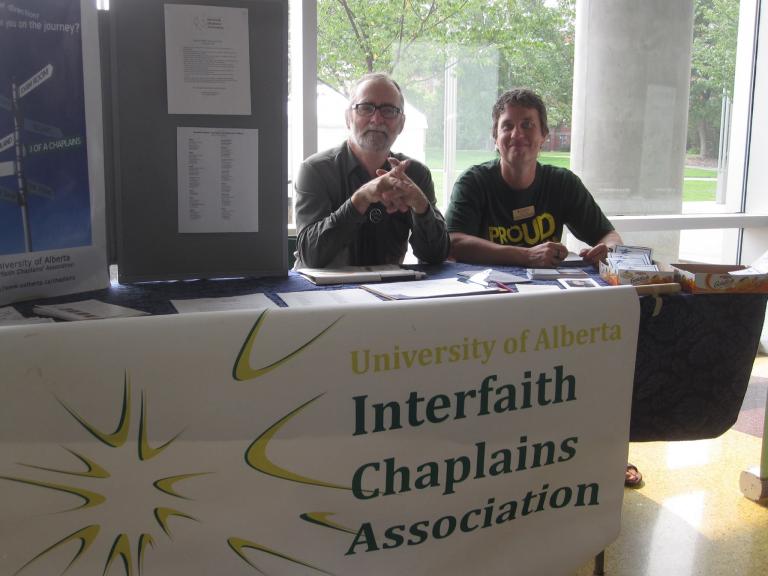
Fourth – dress and play the part . It is very important to consider the visual impression that you will make as a spokesperson. It is an important and real part of the message – just as you would take care in presenting the correct images of a Goddess or God during a ritual, you need to present yourself and your organization correctly. When, for example, I was a victim of religious discrimination in 1994, I trimmed my hair and beard and wore a suit and tie when talking with the press about it (notice the photo at the top of this post). This does not mean that, when appropriate, you cannot dress in full High Priestess Drag, but consider the effect and the audience and whether your own joy in dress up is worth the damage to our religion of reinforcing the non-serious flake image. If you are presenting a ritual in public, go for regalia, but if you are being interviewed about religious discrimination, think about it.
Fifth: do not lie or exaggerate. It is very easy to check the facts that you present and if you lie your entire position will be undercut and you will be exposed as a person without honour. Stick to those things that you know to be true, keep talking about the same points and the same issues, and do not allow yourself to be drawn into wandering, tangents or speculation. Gaffes in live presentations are much less of a problem because you will be able to recover. But, it is those errors which the editor, whom you will never meet and who may not be kindly disposed toward our religion or to you, may pick up.
As a related issue – know what you are talking about. You need to be both very well informed about the topics and issues that you are talking about, able to represent groups that have delegated you to speak for them, and have a clear idea of what you want to put across. If you are representing a group or publicizing a specific event or issue stick to the group’s public position or the specific issue. Your position on gun control is irrelevant to protecting a sacred First Nations site from development, as an example.
Do not posture, pose or bluster. Bullcrap stinks really clearly on camera and media people are generally fairly bright as well as quite experienced in how people try to intimidate or obfuscate. If your argument has merit then it can be demonstrated. It is the weak, deceitful, unsure and poorly argued positions that require those tactics – something we will never be in a position to need.
Sixth, and a difficult issue of honour and dignity: do not attack anyone personally, even if you are responding to a personal attack on you or on our religion. You will look petty and defensive regardless of how carefully you may phrase a counter-attack. Tell the truth. Respond with the facts about whatever it is or simply deflect these questions. It is an unfortunate fact that attacks are more likely (aside from the utter wing-nuts that are an embarrassment to their co-religionists as well) to come from within the Pagan communities than from outside. These attacks are seen as more credible by media. A suggestion is that you respond with “Well, discussion inside of a religious movement can get heated sometimes” and move along. Explaining the theological or organizational differences would take a great deal of time, would be unlikely to get you anywhere with either the media or your unethical opponents, and would result in their positions getting more exposure and publicity than they deserve.
Finally, when you have the opportunity, create the news. Rather than waiting for the press to come to you (unless there’s a scandal, they generally won’t), send out press releases and be pro-active in your relations with them. Tell the press about important, notable or fun things that you and your group are going to do far enough in advance (a week is generally plenty of notice) that they can send a reporter and photographer down to talk with you about your event, or attend it.
Get to know your local religion reporter and get an idea of which media are more likely to cover your events – the local weeklies will, the small-city papers definitely will, and the tabloids are more likely than the broadsheets. The local TV news and radio will interview you at Halloween, but are unlikely to do much at other times of the year. Those reporters that show up at events should be on your contact list – they like getting interesting press releases since they then have something interesting to cover, and you can be more likely to make news that you want covered get covered. As well, getting positive publicity is good in itself, and building up credit for the next time a “Satanic baby-torturing” panic is whipped up by the local nut-bars is very good indeed.
This also applies to non-newsy things like the Sabbats and their meanings and general theological discussion of issues in the news. Other religious bodies comment on moral and ethical issues publicly and we must as well, to enter into the social dialogue and ensure our issues and perspectives are represented.
People are generally reasonable and inclined to help you out, particularly if helping you out helps them out as well. Being reasonable and helpful and trying to make the reporters’ jobs more interesting and easy will pay back big. It also makes the whole thing more fun for leaders and spokespeople to do and more effective in putting across our messages. Those inclined toward being stroppy, confrontational, negative, into the pleasures of victimhood or conspiracy theories or inclined to self-righteousness, should not be spokespeople. In fact they should probably not be clergy or leaders in the church.


